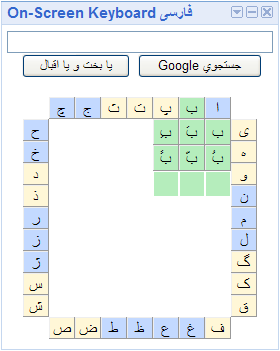Good News for Nowruz: Say Salam to Skype!

This is a special Nowruz to anyone working on tech-focused programs for Iran: the Office of Foreign Assets Control under the U.S. Treasury Department has just released new guidelines on communication and other web-based technologies that can be used in Iran. Earlier this week, the White House illustrated that these services are of critical importance to Iranians, in order to keep them connected with their peers outside Iran, specifically stating, "We encourage American companies to make their software and communications tools available to the people of Iran to help bring greater access to the world’s knowledge and information, and to empower Iranians with the tools to make their voices heard".
Technologies that can now be used without requiring prior approval or a waiver include:
- Personal Communications (e.g., Yahoo Messenger, Google Talk, Microsoft Live, Skype (non-fee based))
- Updates to Personal Communications Software Personal Data Storage (e.g., Dropbox)
- Browsers/Updates (e.g., Google Chrome, Firefox, Intemet Explorer)
- Plug-ins (e.g., Flashplayer, Shockwave, Java) Document Readers (e.g., Acrobat Readers)
- Free Mobile Apps Related to Personal Communications
- RSS Feed Readers and Aggregators (e.g., Google Feed Burner).
In addition, these guidelines also clarify other paid web-based services that could be eligible on a case-by-case basis for special licensing to export to Iran. These include web hosting, online advertising, fee-based mobile apps, and fee-based Internet communication services (such as Skype credit).
Why does this matter? Working in embargoed countries presents additional challenges for groups that want to leverage existing technologies to help empower Iranian citizens. Tools and services that are available to the rest of the world have usually been unavailable to Iranian citizens. While this is primarily a result of the Iranian regimes diverse attempts to curtail access to independent information (as noted by Committee to Protect Journalists, Freedom House, and Reporters without Borders), export regulations have traditionally been unclear as to what technologies can be made available to Iranian citizens. As a result, U.S. technology companies often overassume what services need to be restricted in order to maintain compliance with export regulations. In extreme cases, this can leave Iranians unaware of what threats are impacting their web-based activities.
At NDI, we strive to make our partners aware of their risks, and to adapt and evolve programs given the political context and technologies available for use. These steps to broaden access to free and widely used web and mobile technologies can significantly help to amplify the efforts of Iranian civil society to meaningfully engage with one another as well as their peer organizations outside of Iran.
